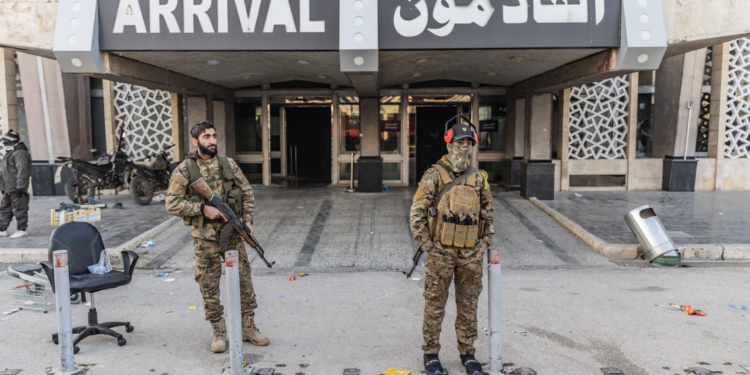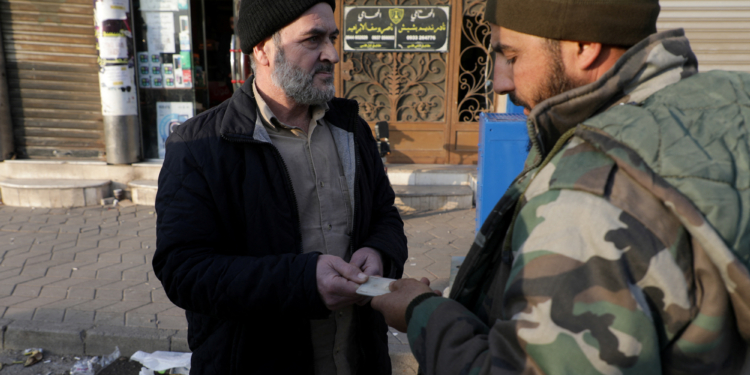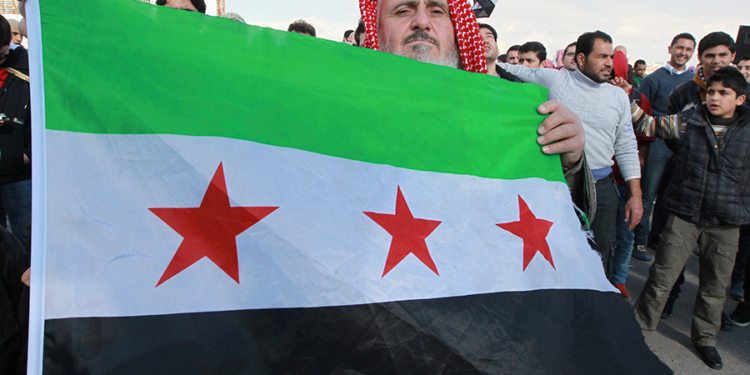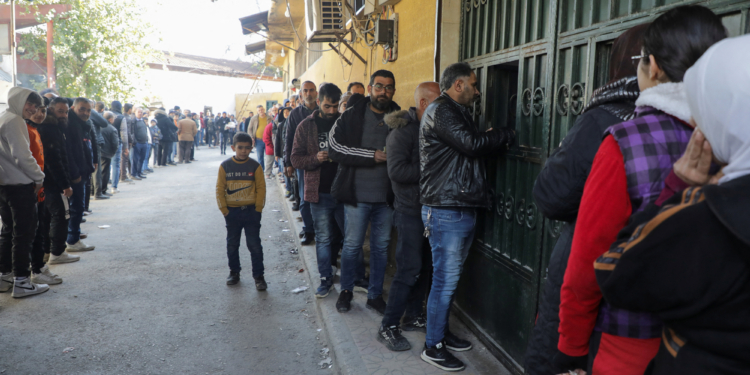Commentary
by
Yasir Atalan
Published December 12, 2024
This series—led by the Futures Lab and featuring scholars across CSIS—explores emerging challenges and opportunities likely to shape peace negotiations to end the war in Ukraine. All contributions in the series can be found by visiting Strategic Headwinds: Understanding the Forces Shaping Ukraine’s Path to Peace.
Most interstate conflicts conclude with negotiated settlements rather than clear victories by one side. Such settlements often necessitate mediation efforts undertaken by actors perceived as neutral by all parties involved, especially when neither side can unilaterally impose an outcome. In the case of Ukraine, few candidates can play this role, and Turkey is one of them even if it is not entirely neutral in this war. It is a NATO member and was amongst the few providers of military equipment to Ukraine in the early stages of the war. Plus, Ankara has fostered deep, strategic-level defense cooperation with Kyiv beyond the sale of drones. Therefore, Turkey’s relations with Ukraine are more strategic in nature. Despite this, Turkey has close ties with Moscow. Plus, Turkish president Recep Tayyip Erdoğan enjoys a chummy personal rapport with Russian president Vladimir Putin. Likewise, Turkey has refrained from joining Western sanctions against Russia. These factors enable Ankara to sustain good relations with both Ukraine and Russia, allowing it to assume multiple roles—diplomatic, economic, security, and humanitarian—throughout the conflict. Despite constraints, Ankara can play an important role should president-elect Donald Trump decide to pursue a diplomatic track on the war. It is the most powerful NATO littoral state in the Black Sea with close ties with Ukraine and Russia.
Assessing Turkey’s Role in Potential Negotiations
Since the beginning of the war, there have been few attempts to mediate the conflict. Turkey, despite facing criticism from the West, has endeavored to walk a fine line to showcase its diplomatic capabilities—a strategy that has yielded tangible results. Firstly, Turkey hosted a significant meeting in Antalya in March 2022, bringing together the foreign ministers of Russia and Ukraine for bilateral talks. Although this meeting was a dead end with no prospect, this was the first high-level engagement between the two nations since the conflict began, highlighting Turkey’s role as an early mediator.
A more productive attempt was the Black Sea Grain Initiative. This initiative stemmed from concerns beginning at the onset of the Ukraine war. When the war broke out, it precipitated a global food crisis and grain shortages. On July 22, 2022, Turkey and the United Nations brokered a deal between the warring parties to establish a shipping corridor for Ukrainian grain which was a lifeline for 349 million people. This agreement was crucial in alleviating the food crisis and bolstering Ukraine’s economy during a tumultuous period. Building on its role as a diplomatic facilitator, Ankara hosted the U.S. and Russian spy chiefs in November 2022 to discuss nuclear threats. Likewise, Turkey’s diplomatic efforts were instrumental in a recent prisoner swap between Russia and Ukraine. This deal was warmly welcomed by the international community, leading to the safe return of important prisoners and signaling the effectiveness of Turkey’s mediating role.
Turkey’s political positioning is an enabler for such a role. Since the beginning of the war, Turkey’s position was ultimately unique. On the one hand, Turkey strongly backed Ukraine’s self-defense and territorial integrity and supplied Ukraine with unmanned aerial vehicles (UAVs) and other arms. Simultaneously, Turkey has refrained from joining Western sanctions against Russia and has maintained energy ties by continuing the transfer of Russian gas, which has been vital for Russia’s economy. This balancing act stemmed from Turkey’s reading of the global order, viewing it as more multipolar and less Western-centric, which increased the importance of regional frameworks. Such a worldview entailed Turkey maintaining close ties with Russia and Ukraine at the same time.
Despite these advantages, several challenges could hinder Turkey’s ability to mediate. First, Turkey’s being a central actor in the Ukraine conflict damages Turkey’s image as a neutral actor. While being part of Black Sea security architecture, and the ultimate gatekeeper with the control of the straits, Turkey is also balancing Russia in other key geographies including Syria and Libya. Put differently, Turkey is ultimately a hedging actor instead of a neutral third party. Second, Russia may oppose Turkey’s mediating role due to its military support for Ukraine, including the provision of Bayraktar TB2 drones. Similarly, Turkey still considers Crimea, Luhansk, and Donetsk as Ukraine’s land, which could attract Russia’s criticism. Third, as a NATO member, Turkey is ultimately aligned with the transatlantic alliance, which Russia views as an adversary. Fourth, the West may also be cautious about endorsing Turkey’s key role in ending the conflict, given uncertainties about Turkey’s future position within the broader West. These concerns can be alleviated through more clarity about Turkey’s place in the post-war security order. Ankara may be more willing to lean into a mediation role if it sees a clear path toward shaping a stable and inclusive regional security framework.
Leveraging Turkey’s Position
Regardless of assuming a mediation role, Turkey should advocate for negotiations that can give Ukraine the opportunity to recover itself and build up its arsenal to defend itself and situate Ukraine in a European security architecture. Any position short of this will likely incentivize Russia to continue its aggression. Aware of this, Turkey could leverage its strategic position—balancing against Russia in the Black Sea and acting as a competitor in Syria—to influence the negotiation talks. Turkey should aim to be a key actor in post-war Ukraine reconstruction as well as rebuilding its defense industrial base. Such an approach will both serve a more sustainable settlement and Turkey’s desire to be a key regional power.
Meaningful coordination between the United States and Turkey could contribute to establishing a sustained ceasefire in Ukraine. The next Trump administration has some room to leverage Turkey’s position to end the conflict to the benefit of Ukraine. At a basic level, President Trump can leverage his personal relations with President Erdoğan to engage in leader-level diplomacy with President Putin, potentially creating a positive framework for negotiation talks. On a more strategic level, the recent rebel takeover of the Assad regime in Syria presents an opportunity for the United States and Turkey to align their regional interests. By coordinating policies and operations in Syria—particularly regarding the future of the Syrian government and Northern Syria—they could divert Russia’s attention and resources. This shift might influence Moscow’s approach to the Ukraine conflict. With that, the United States can collaborate with Turkey on energy projects to reduce Turkey’s dependence on Russian oil and gas, a factor that could be key to ending the war. Finally, Turkey’s contribution to the negotiations will be limited without clarity on the strategic framework between the West and Turkey regarding the latter’s role in the Western security architecture. Thus, a more European NATO with Turkey playing a more prominent role could help resolve this ambiguity.
A diplomatic settlement also requires clarity about Ukraine’s future, the security dynamics of the Black Sea, and their respective roles within Europe’s broader security framework. Achieving this will demand more intensive foreign and security policy coordination among Turkey, the European Union, and the United Kingdom. Such cooperation is essential not only for ensuring sustainable peace in Ukraine but also for effectively counterbalancing Russia’s influence in the shared neighborhoods of Turkey and Europe.
Yasir Atalan is a data fellow for Futures Lab in the International Security Program at the Center for Strategic and International Studies in Washington, D.C.
Commentary is produced by the Center for Strategic and International Studies (CSIS), a private, tax-exempt institution focusing on international public policy issues. Its research is nonpartisan and nonproprietary. CSIS does not take specific policy positions. Accordingly, all views, positions, and conclusions expressed in this publication should be understood to be solely those of the author(s).
© 2025 by the Center for Strategic and International Studies. All rights reserved.
















































